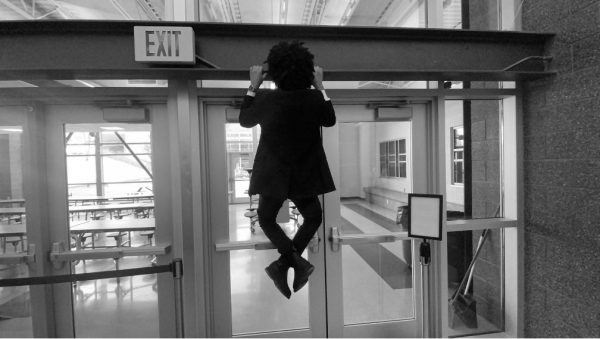Rated R
Seventeen. The age you must be to watch an R-rated movie. You can drive a car at sixteen but you can’t see a movie deemed “restricted” without an adult accompanying you unless you’re seventeen.
When Stephen King’s newest installment of “It” was released, sophomores immediately began to plan how they were going to get in. Some tried to act mature so that employees assumed they’re older than they are, avoiding awkward questions about their age.
Others bought a ticket for a PG/ PG-13 movie and then simply walked into the movie that’s “restricted.”
However, most sophomores who tried to get their hands on a ticket without an adult present were unsuccessful. You would think that the theater would hesitate to turn away paying customers, but employees at the Redstone Theater have been diligent enforcing this particular policy.
Even a sophomore employee at the theater helped to remove his peers from the showing. Ella Ball, a sophomore, and her friend were among the unlucky minors to be kicked out of “It.”
“They kept checking up on us before the movie started,” Ella recalls. A few seconds into the movie, the sophomore employee came over, wondering where their “accompanying adult” had gone. Ella and her friend attempted to lie, but were unsuccessful and were escorted back to the lobby of the theater. Not wanting to give up yet, they called the nanny of a friend of a friend, their “fake accompanying adult,” who had purchased their tickets. “[The Adult] came back and went into the theater with us and sat a couple seats away and then she left after a while” Ella explained. That’s a lot of effort for access to only two hours of a single movie.
When I went to see “It” later that same day, without an adult, I had no difficulties entering the showing. The same employee who had kicked Ella out, directed me and my friend in the direction of the screening. This makes me question the consistency of the employees, in regards to who they opt to allow in or kick out.
Another issue was that after demanding that Ella leave the theater, they informed her that they would not be refunding her ticket. Homecoming weekend, I tried to see a different movie that was rated R without success. All of the movies playing, except for one, were rated R so we had no other options. We ended up back at my house and spent money renting a movie on iTunes instead of spending our money at the theater.
But should it even be the theater’s responsibility to decide what you can or cannot view in regards to film appropriateness? The Classification and Rating Administration (CARA) rates movies “[W]ith the intent to provide parents information concerning the content of those motion pictures, to aid them in determining the suitability of individual motion pictures for viewing by their children.” Movies are rated for the sole purpose of helping parents make educated decisions, rather than for the use of theaters regulating audiences.
So let the parents decide whether or not they want to follow CARA guidelines. Plus, hopefully by the age of sixteen a person is capable of recognizing what kind of material they can or cannot handle. If you find that you can’t handle the material, you’re free to leave the theater at any time, just don’t expect a refund.
Many sophomores found that the movie “It” did not contain material inappropriate for fifteen and sixteen year olds, at least in comparison to other horror movies that had a PG-13 rating. A majority of the actors in the movie “It” are fourteen, so the whole movie is based around children who aren’t even allowed into a showing of a movie they acted in.
The most logical reason for the policy seems to be liability issues, which Ella touched on, “I think [the policy is] pretty valid honestly. It’s dumb because if we think we can handle it, then we can probably handle it but they don’t want to get in trouble with parents.” When it comes to this policy, the theater would rather be more “safe than sorry.”
Another reason for the policy might be the way that minors tend to act in the theater. The theater doesn’t want teens in the movie who are going to talk on their phones or cause other disruptions. Not allowing minors in an “adult” movie minimizes the chance of other movie-goers having unsatisfactory experiences. The movie “It” was just named the first horror movie to pass three-hundred million dollars worth of ticket sales. Obviously theaters aren’t missing the bills wadded-up in the pockets of sophomores.
Sophomores will have to be satisfied counting down the days until turning seventeen to purchase tickets for an R-rated movie without help from our parents or “fake accompanying adult”.






